Hamlets Problematic Revenge
Hamlets Problematic Revenge
Forging a Royal Mandate
William F. Zak
LEXINGTON BOOKS
Lanham Boulder New York London
Published by Lexington Books
An imprint of The Rowman & Littlefield Publishing Group, Inc.
4501 Forbes Boulevard, Suite 200, Lanham, Maryland 20706
www.rowman.com
Unit A, Whitacre Mews, 26-34 Stannary Street, London SE11 4AB
Copyright 2015 by Lexington Books
All rights reserved . No part of this book may be reproduced in any form or by any electronic or mechanical means, including information storage and retrieval systems, without written permission from the publisher, except by a reviewer who may quote passages in a review.
British Library Cataloguing in Publication Information Available
Library of Congress Cataloging-in-Publication Data
Zak, William F., 1945
Hamlets problematic revenge : forging a royal mandate / William F. Zak.
pages cm
Includes bibliographical references and index.
ISBN 978-1-4985-1310-4 (cloth : alk. paper) ISBN 978-1-4985-1311-1 (electronic) 1. Shakespeare, William, 15641616. Hamlet. 2. Shakespeare, William, 1564-1616CharactersHamlet. 3. Revenge in literature. I. Title.
PR2807.Z27 2015
822.3'3dc23
2015007849
 The paper used in this publication meets the minimum requirements of American National Standard for Information SciencesPermanence of Paper for Printed Library Materials, ANSI/NISO Z39.48-1992.
The paper used in this publication meets the minimum requirements of American National Standard for Information SciencesPermanence of Paper for Printed Library Materials, ANSI/NISO Z39.48-1992.
Printed in the United States of America
Acknowledgments
I wish, first of all, to thank Northrop Frye and Rene Girard for the reassurance their commentaries on Hamlet provided me at a critical juncture, reconfirming in me the belief that I was not barking up the wrong tree in my suspicions about this complex plays tragic focus. I have Ewan Fernie and my treasured colleague and friend, Tony Whall, to thank for their unfailingly kind and deeply considerate encouragement of my work. Lastly, I want to thank my wife for her abiding willingness to suffer with meand, more to the point, suffer meas this book and, indeed, my entire professional career of nearly fifty years now unfolded. She has been and remains, still, incomparably dear.
Introduction
The cultural preeminence Hamlet has always enjoyed testifies to the horror the young princes predicament evokes and audiences unparalleled fascination with and sympathy for Hamlet in the agony he endures contending with it. His grief so much more intense evidently than that of others at Elsinore (and still achingly raw), his radar alone attuned to moral insensitivity and impropriety there, Hamlet clearly galvanizes attention and inspires audience respect from the moment he first appears on stage. But for those who identify with the prince unreservedly from first to last, what follows will prove an unwelcome caveat. Emphasizing materials from Hamlet largely ignored as irrelevant to the heros predicament, mindset, and moral choices, this study demonstrates that the play again and again reiterates figurative substantiation of the stark criticism of the prince that has been forwarded by a small, but prestigious group of like-minded scholarsBrooke, Knights, Leverenz, Zitner, Northrop Frye, and, most recently, Rene Girard. Though these readers concede, to varying degrees, the mitigating factors cited above, they all regard Hamlets behavior, from beginning to plays end, as woefully misguided. If, for a moment, we bracket how Hamlet thinks and feels about his quandary, about his fellow men, and about himself and concentrate alone on what in fact he does and accomplishes, it is difficult to ignore the unmitigated disaster and catastrophe his acts (such as they are) accomplish.
Over fifty years ago now, Sheldon Zitner voiced the following critique of Hamlets anguished career, an assessment that to this day has largely gone unanswered.
If one were to seek in Shakespeare the clearest representation of the inadequacies, the emptiness of violence, of the consequences of inhibited passion, of the impossibility of a deracinated disinterestednessindeed, of all the pernicious aspects of manliness that underlies themone would turn to Hamlet.... here heroic privatism at its noblest is taken up on its own terms and most devastatingly and thoroughly represented.... a feud [is not] resolved nor a free time garnered, nor even, as in Othello , imperfect sensibilities demonically abused, to point to in mitigation. The best and worst go down together, and the completion of the task enjoined is, after all the anguish, finally as perfunctory and empty as the ritual blare of Fortinbras success. (137)
Though there have been legions since who have tried to ignore, soften, or even contradict this reluctant verdict, no one to my knowledge has made an effort to rebut it directly so as to win a reversal on appeal. And understandably so. It is difficult to wish away the fact that from the moment he vows to avenge his fathers murder until his own death (and indeed all along the way) Hamlets behavior, albeit dilatory, does nothing more, figuratively, than discharge the murdring piece that gives... superfluous death (4.5.956) Claudius had mistakenly expected from another quarter entirely. Though he does take deadly aim at Claudius alone, so long as his sole goal in life remains his oft-reiterated desire to propel himself as something of a missile directed at his uncle (a murdring piece being a cannon loaded with shrapnel to spread maximum damage when directed at its target), superfluous death (including his own) remains the unwitting destiny he determines, that and that alone his only accomplishment. As benighted figuratively as the doomed Pyrrhus is literally, as Hamlet proceeds in his analogously vengeful assault, he, too, (albeit less floridly) finds himself horridly tricked / With blood of fathers [Polonius], mothers [Gertrude], daughters [Ophelia], sons [Rosenkrantz and Guildenstern, Laertes, and himself] (2.2.4578), leaving nothing but butchered corpses along his ill-considered trajectory. Had the prince not thought too precisely on the [lethal] event (4.4.4) about which he obsesses (that is, with an insufficiently comprehensive perspective or an evasive scrupulosity), at some point or another he would have come to fear and take under conscientious review the alarming collateral damage that, instead, he continues to ignore or downplay all too cavalierly.
Nor is the superfluous death Hamlet delivers restricted to relatively innocent bystanders and himself as revenges engineer hoist with his own petar (3.4.207). In his final gesture, rage redoubled, he forces the poisoned cup upon Claudius even though hes been now informed that he has wounded the villain fatally with one of the poisoned dueling rapiers: in so doing wreaking superfluous death on an enemy hes already vanquished. Such are the enactures that with themselves simply destroy (3.2.19): reckless death-dealing the alpha and omega, not shriving time allowed (5.2.47) for anyone executed in the play, no reckning made (1.5.78) of a spiritual sort whatever but only a numerical reckoning of the dead left to be tallied in bewilderment by the mute observers of this spectacle of compounded ruin.
Likewise difficult to ignore is the savage spirit with which the prince voices over this superfluous death demanded of Claudius, Hamlets blasphemous curse delivering here on Act 3s promise to put up his vengeful sword until, at a more propitious moment, he might damn his uncle, body and soul, with a more horrid hent (3.3.88). Those (among them perhaps Hamlet himself) who imagine a spiritual advance in the prince in Acts 4 and 5one seemingly evidenced by Hamlets post sea-voyage calm and confidence in a divine order providentially sponsoring and indeed virtually determining the satisfaction he seeksmust address the unhappy fact that when that moment comes Hamlet exhibits no moral advance whatever regarding the purpose, at once lethal and blasphemous, pronounced two Acts earlier and now redundantly reaffirmed. The judgment Hamlet delivers with confident finality over a dying man defers to no divine order transcending this duel between two murderers now still facing off against one another unrepentantly; rather, its all-too-human judgment usurps the divine prerogative presumptively, in its place forging its own damning disposition of Claudius soul. As R. A. Foakes aptly characterizes the matter (arguing that Hamlets moral occlusion may well be a more deadly spiritual version of the sins of the flesh both he and his fathers ghost presume in Gertrude) blood lust [and, as well, spiritual arrogance] can be linked incestuously to the radiant angel of righteous indignation ( Shakespeare and Violence 119). For all but Hamlets most unreconstructed apologists, it remains difficult to put out of mind, once it has been lodged there, the image of the prince presiding at this execution as something of a devils priest conducting a perverted rituala macabre anti-communion, forcing poisoned wine down the throat of a dying mannot to urge on Claudius a repentant spiritual union with his Christian redeemer, but instead to urge a spiteful and lewd union with his doomed incestuous consort in the hell to which Hamlet now consigns mother and uncle together (Coursen 154). In a dramatically ironic sense, then, Hamlet spoke the truth at his mistaken execution of Polonius: Thus bad had begun and worse remain[ed] behind (3.4.179), awaiting a yet more maliciously mistaken act of violence to come. In such actsas in every act of vengeancethe avenger does not reestablish a just order but succeeds merely in doing the criminal perpetrator thus punished one better.
Next page
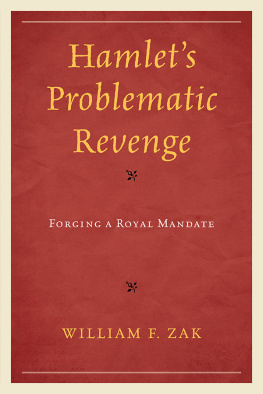
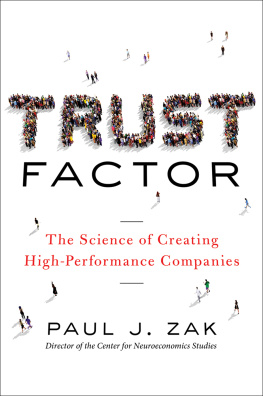
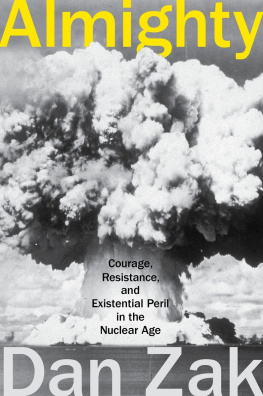




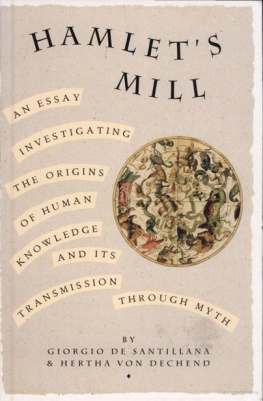

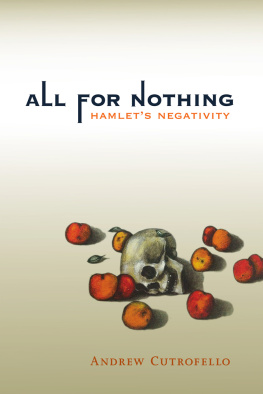
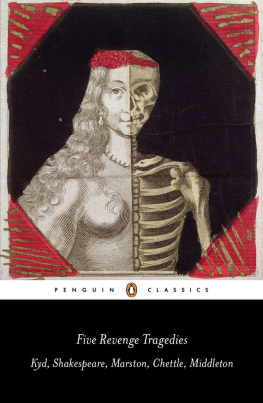
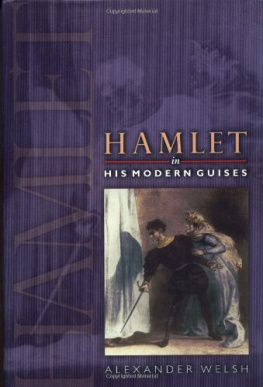

 The paper used in this publication meets the minimum requirements of American National Standard for Information SciencesPermanence of Paper for Printed Library Materials, ANSI/NISO Z39.48-1992.
The paper used in this publication meets the minimum requirements of American National Standard for Information SciencesPermanence of Paper for Printed Library Materials, ANSI/NISO Z39.48-1992.